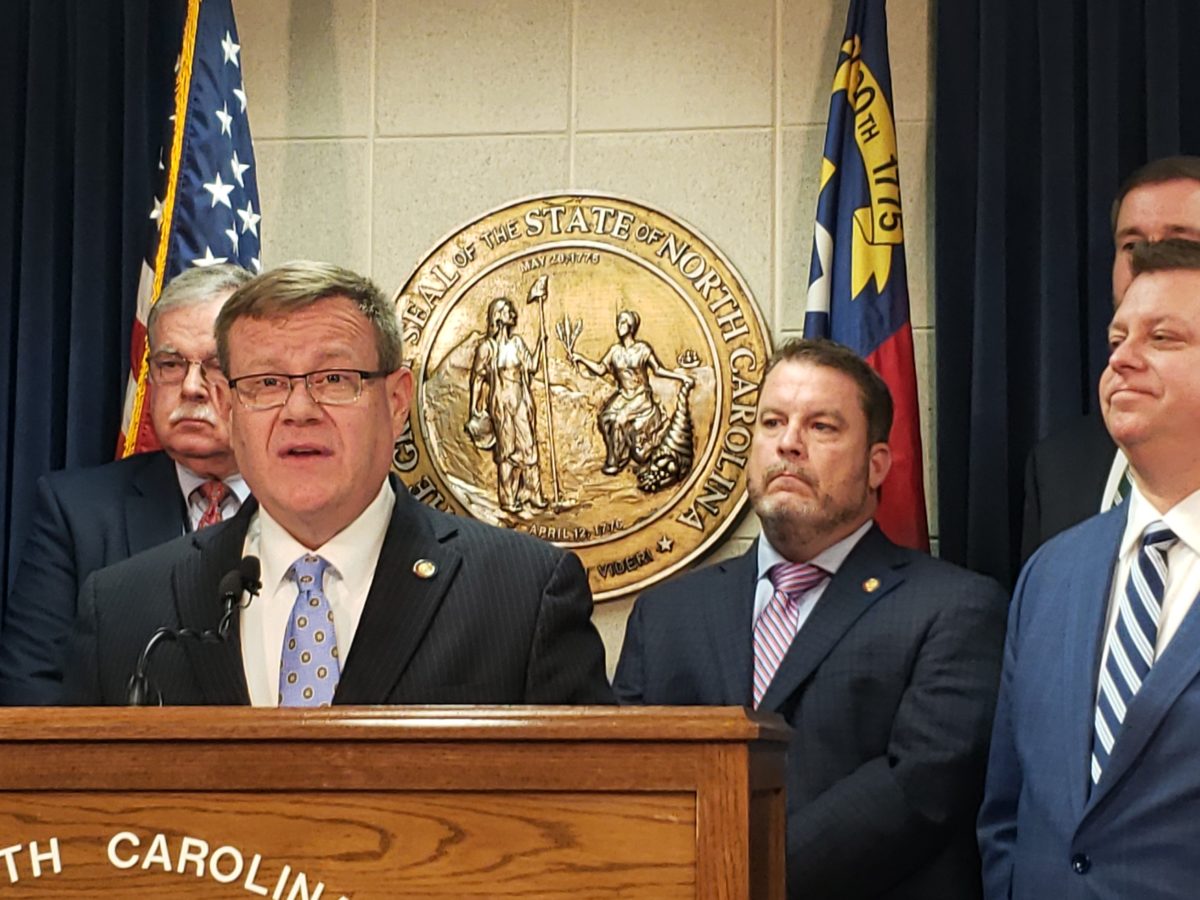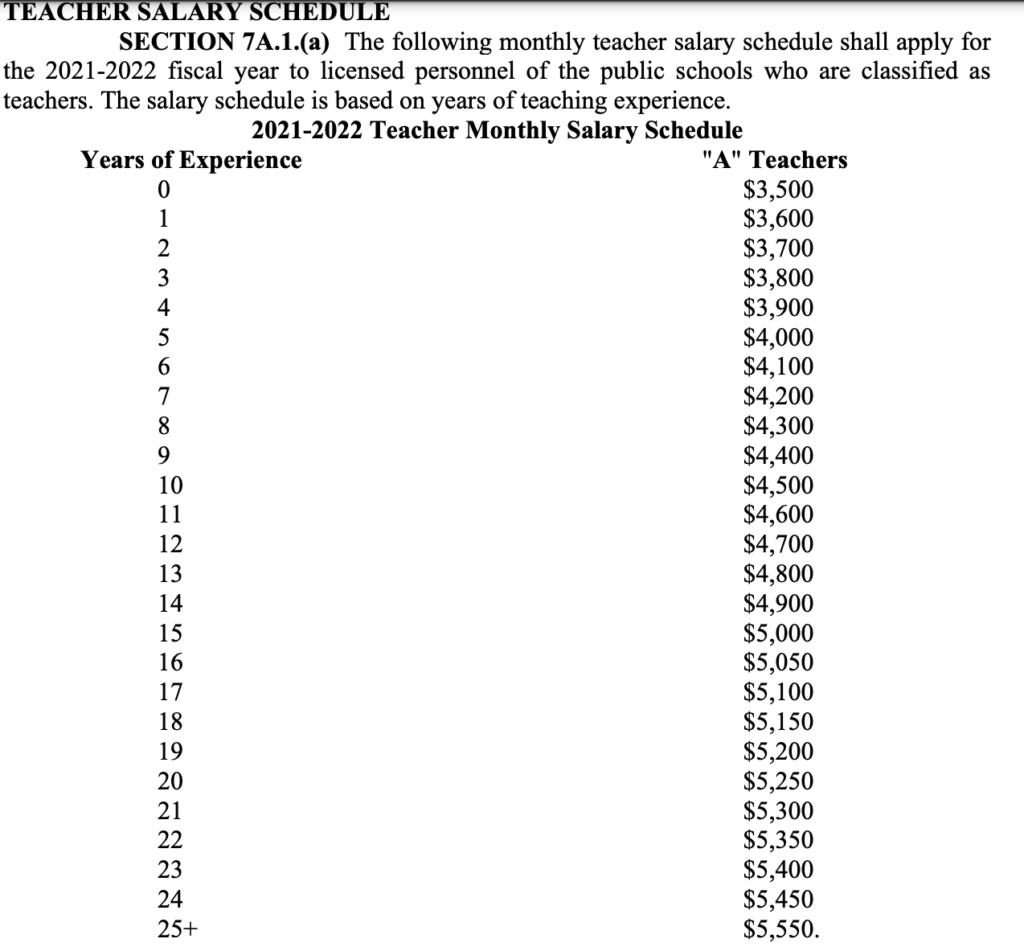

|
|
Following a sneak peek last week of some of the House’s budget proposals, the full bill was finally released late Monday afternoon.
The full proposal includes the House’s plan for teacher and community college personnel salaries, which were left out of the education appropriations committee meeting last week.
At a press conference on Monday, House Speaker Tim Moore, R-Cleveland, called the $25.7 billion proposal a “record amount of investment.”
“I think what you’ll see with this budget is that it does take care of North Carolina, from the mountains to the coast and everything in between,” Moore said.
You can read the full bill text here, and you can read about other House budget education provisions introduced last week here.
Here’s what it does for education.
K-12
One of the most anticipated pieces of information from the budget was what the House would do about teacher pay. And as expected, the House proposal is more ambitious than the Senate.
Teachers haven’t had a raise in two years because no budget was passed in 2019. Now, in the House’s proposal, teachers would get an average raise of 5.5% over two years. That is an average pay increase and includes step increases for teachers who would have gotten them anyway.
But that’s not where it ends. All state employees could also expect a $500 bonus. Those making less than $75,000, along with high school principals, would get an additional $1,000 bonus. Employees making less than $40,000 would receive an additional $500.
This means teachers and other state employees could get up to $2,000 in bonuses this year.
Additionally, similar to the Senate proposal, teachers would get a $300 bonus using funds that normally would have been appropriated for performance bonuses but could not be due to COVID-19 disruptions in testing data.
School staff like custodians and bus drivers could also expect a pay bump under the House budget, which proposes a minimum salary of $13 an hour this fiscal year and $15 an hour next fiscal year. Rep. Jeffrey Elmore, R-Wilkes, said the delay is to give districts a transition period.
The House budget expands the salary schedule for teachers who have been in the profession for more than 15 years so teachers get a salary increase each year until after year 25. The Senate proposal has years 15-24 in one step.


The House is also proposing:
- Giving teachers eight weeks of paid maternal leave.
- Restoring advanced degree supplements (master’s pay) for all teachers.
- Creating a rural area recruitment program that would allow the state to match a district’s signing bonus to pull teachers from urban areas.
- Removing the $50 personal day fee for teachers.
One of the big differences between the House and Senate proposals is how they are handling potential drops in enrollment due to COVID-19 this school year. While the Senate had a specific provision to hold districts harmless for enrollment declines, the House is proposing creating a funding reserve to cover any enrollment declines.
For other education provisions revealed in committee last week, read this article.
Community colleges
Under the House proposal, community college faculty would get a 7% raise over two years, while other staff would get a 4% raise.
The proposal also would create a recurring fund for recruitment and retention. This would allow a community college to contact the system office to get additional funds for a new hire’s contract if necessary.
“We are having problems recruiting professors, especially in certain segments, certain areas like health care, IT, and also the trades,” Elmore said on Monday.
Early childhood
The House’s proposal matches the Senate’s provision to provide funding to increase NC Pre-K rates for child care centers 2% in both years of the biennium, as well as allocating $15 million to Smart State initiatives.
The House allocated $502.8 million in federal American Rescue Plan funds through the Child Care Development Block Grant.
In addition, the House’s proposal includes $10 million in nonrecurring funds for pre-K classrooms and child care centers.
What’s next?
These proposals could change as the bill works its way through the chamber.
House Republican leaders expect the process to move quickly this week, with committee meetings taking place throughout the day on Tuesday and a final floor vote expected on Thursday.
Once the budget passes the House, the House and Senate will negotiate a compromise. Once the full General Assembly passes a budget bill, the governor can sign it, veto it, or let it become law after 10 days by doing nothing.





